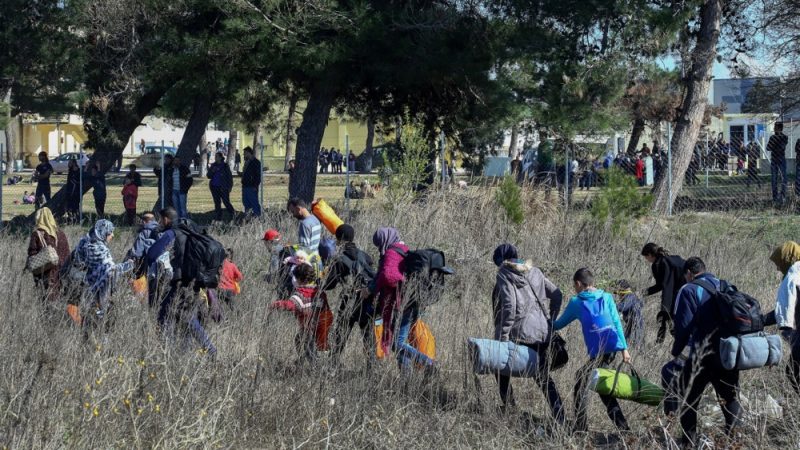The migration discussion has opened again in Europe, with Germany preparing to increase the number of asylum seekers it sends back to first-line countries and Greece planning to raise the issue at a summit next month.
Europeans have reacted to controversial discussions in Berlin, where some actors are pushing the government to refuse entry to refugees and return those already in Germany who entered the EU through another country.
This increases the number of refugees sent to other EU countries under the Dublin III Regulation, which requires the EU’s first-line countries to accommodate most asylum-seekers.
The regulation applies until Europe’s new Pact on Migration and Asylum – adopted this year – enters into force by mid-2026.
Berlin is particularly concerned about the so-called secondary movements when refugees or asylum-seekers move from the country in which they first arrived to seek protection or for permanent resettlement elsewhere.
According to Welt am Sonntag, which cited figures from the Federal Office for Migration and Refugees (BAMF), last year, 16,500 people applied for asylum in Germany while having already been granted asylum in Greece.
Of those, 12,000 were granted asylum in Germany as well.
As per the same source, 158 people were deported to Greece last year.
According to the German government, Germany also asked Greece to take back 5,523 refugees via Dublin in 2023. Greece agreed in 65 cases, but only three were returned.
However, the political circumstances do not make things easier for migration talks.
The rise of the German far-right AfD is putting pressure on the coalition government in Berlin and the right-wing main opposition CDU party, which advocates for at least a three-month trial period for border rejections.
Contacted by Euractiv, the German interior ministry said the return of persons seeking protection is regulated in the Dublin III Regulation, which directly applies to EU law.
“The Federal Ministry of the Interior and Home Affairs expects all member states to comply with directly applicable EU law and fulfil their obligations under the Dublin III Regulation”, the ministry said in a written response.
The ministry added that the government is currently holding a “close dialogue” with the Commission and the member states at the European level to improve the return of asylum seekers to the member state responsible for them.
The ministry could not provide “reliable” figures regarding the number of asylum-seekers who travelled to Germany via Greece who are currently in the country.
“Despite the Federal Government’s efforts to improve Dublin cooperation through bilateral dialogue, the Commission, as the ‘guardian of the treaties’, is responsible for enforcing the comprehensive application of directly applicable European law”, the ministry noted.
For its part, the EU Commission has publicly adopted a wait-and-see approach to Germany’s plans.
Critics suggest, though, that the EU executive is leaning toward a coordinated action and avoiding unilateral moves.
However, considering Germany’s leverage in EU affairs, the Commission is now more careful in its communication on the matter.
Greeks up in arms
Meanwhile, in Athens, the centre-right ruling New Democracy party, which belongs to the same EPP family as CDU, is considering raising the issue at the next EU summit in October.
“We will raise the issue at the next EU Council”, a Greek government source told Euractiv.
Regarding the matter, Greek Prime Minister Kyriakos Mitsotakis recently said the first-entry countries shouldn’t bear the burden.
“Greece defended the European borders on the Evros [northeast Greece neighbouring Turkey], and it was the first step in a systematic effort to convince the whole EU that if we cannot limit the number crossing the border, we will not be able to deal with the issue of secondary flows”, he said.
For his part, former migration Minister Notis Mitarakis accused Germany of hypocrisy.
“It is hypocritical of Germany to systematically accuse Greece of protecting the European borders and preventing illegal arrivals and now wanting to do the same, considering humanitarianism to be the exclusive responsibility of the first receiving countries, like Greece”, he said last week.

